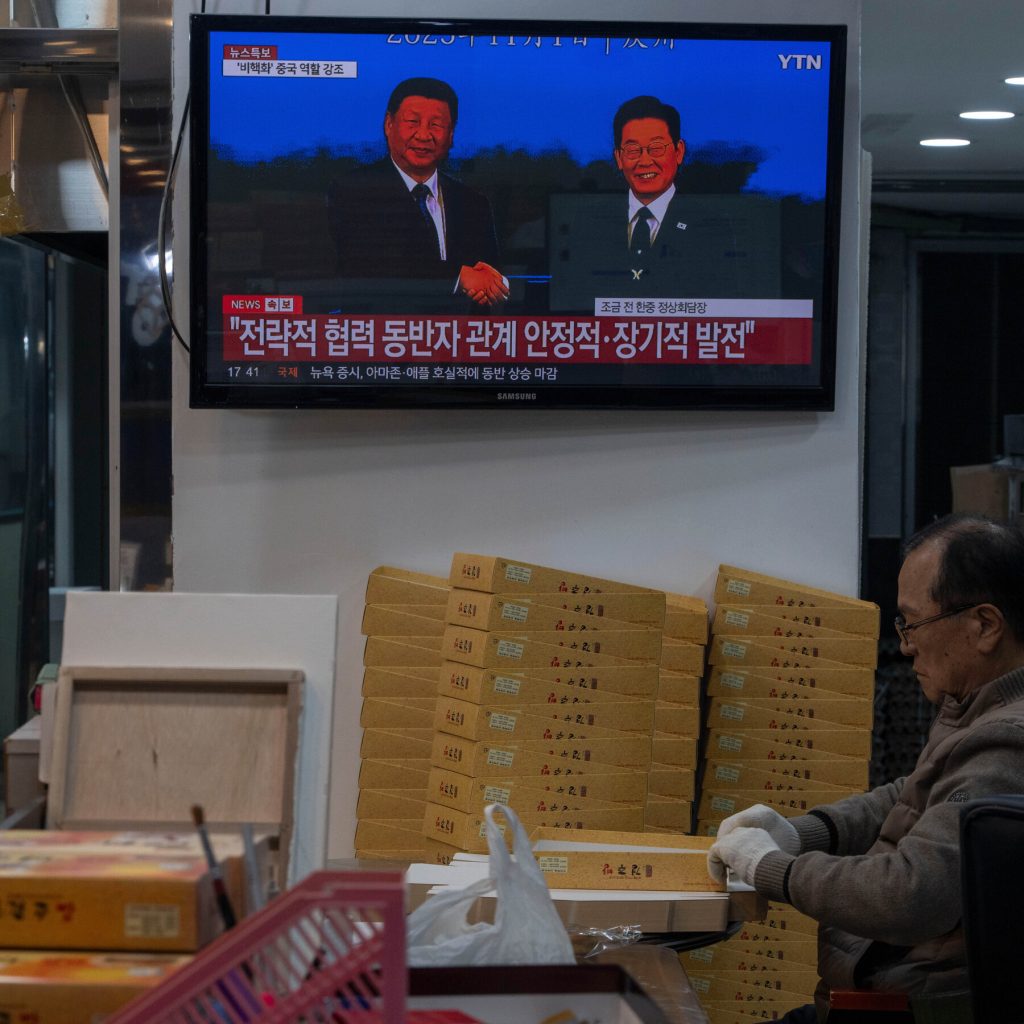Balancing Act: Can South Korea Manage the Competing Needs of the U.S. and China?

This week, South Korea’s new president rolled out the red carpet for two of the world’s most powerful leaders: China’s President Xi Jinping and U.S. President Donald Trump. The diplomatic flurry highlights the increasingly difficult task facing South Korea as it navigates the complex and competing interests of its two giant neighbors.
On one hand, South Korea has long been a key ally of the United States, with a mutual defense treaty in place since 1953. The country has hosted a significant number of U.S. troops on its soil, and the two nations have cooperated on a range of issues, including counter-terrorism and non-proliferation. President Trump’s visit was seen as an opportunity to reaffirm the strength of the alliance and discuss shared concerns about North Korea’s nuclear ambitions.
On the other hand, China is South Korea’s largest trading partner, with bilateral trade exceeding $200 billion annually. Beijing has become an increasingly important player in regional affairs, and South Korea has sought to deepen its economic ties with China while also cooperating on regional issues such as North Korea’s denuclearization.
However, the growing rivalry between the United States and China has created a challenging environment for South Korea. The Trump administration’s efforts to counter China’s influence in the Asia-Pacific region have led to increased pressure on Seoul to choose between its two major trading partners. China, meanwhile, has been keen to expand its economic and diplomatic influence in the region, often at the expense of U.S. interests.
President Trump’s visit was marked by a stern warning to North Korea, while also calling on China to do more to rein in Pyongyang’s nuclear ambitions. In contrast, President Xi’s visit was characterized by a warm and cordial tone, with the two leaders agreeing to strengthen economic ties and cooperate on regional issues.
As South Korea navigates these competing demands, its new president faces a daunting task. While the country has traditionally enjoyed good relations with both the United States and China, the growing rivalry between the two superpowers has raised the stakes. Seoul will need to carefully balance its relations with Washington and Beijing, while also advancing its own national interests and maintaining stability on the Korean Peninsula.
Ultimately, South Korea’s ability to manage the competing needs of the U.S. and China will depend on its diplomatic skill and strategic vision. As the country seeks to navigate this complex landscape, one thing is clear: the fate of the Korean Peninsula, and indeed the broader region, hangs in the balance.





